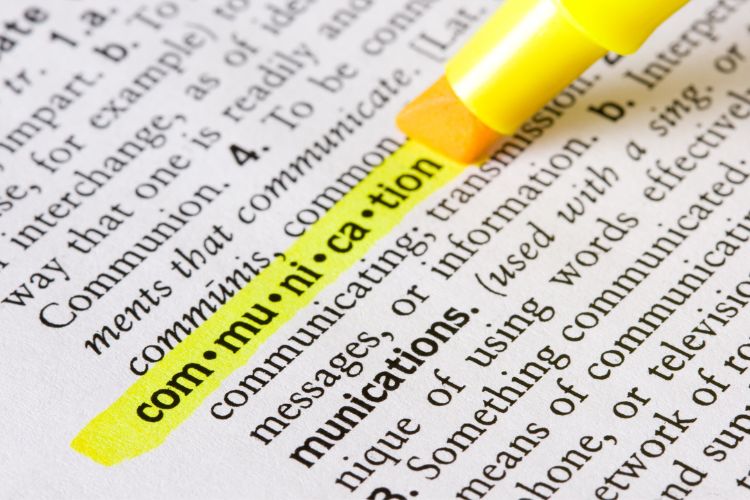We all love a good hack—some shortcut to doing what’s needed more easily. Language learners are no different. Here, we have loads of tips to share with you. Let’s dive into this list of how to troubleshoot specific issues and challenges on your language learning journey.
Avoid the Urge to Memorize or Study Related Terms
Contrary to popular practice, avoid learning near-synonyms, opposites, or members of a lexical set together. Lexical sets are groups like the months of the year, the names of fruit, colors, parts of the body, and articles of clothing.
Learning the words in such pairs or groups at the same time can result in those words getting mixed up with each other, making them harder to learn. The consensus of research is that learning members of lexical sets together leads to confusion and poor recall of words over time.
How Can Multiword Phrases Be Learned?

Words typically occur alongside others to form phrases. Most phrases have a meaning that’s closely related to the meanings of the words that they contain. For example, “next week,” “six o’clock,” “strong tea,” and “in a minute.” The relationship between the meaning of the phrase and the words it contains isn’t always clear in some phrases, but there’s still a strong connection.
For example, “kill two birds with one stone,” “see the light at the end of the tunnel,” and “think about it.” For some phrases, the parts’ meanings have no obvious relationship with that of the whole, such as “at all,” “of course,” “as well,” “generally,” or “raining cats and dogs.”
Many terms describe various phrases, such as idioms, collocations, multiword units, figuratives, and lexical bundles.
However, what’s important about all these phrases is that deliberate attention must be given to them to help toward more accurate and fluent language use.
There are several ways to learn multiword phrases:
- Determine how the meanings of the parts relate to the overall meaning: This may entail seeing the connection between the literal and figurative meanings of phrases and clauses with figurative meanings. For example, the phrase “gave me the green light” has a literal meaning of seeing a green traffic light and a figurative meaning of being granted permission to proceed.
- Consider the phrase’s structure: Alliteration (words beginning with the same sound) is used in approximately 20% of English phrases, such as leading light, baby boom, head held high, or some other sound connection such as similar vowel sounds (blue moon), rhyme (when the cat’s away, the mice will play), repetition (by and by), and partial rhyme (last gasp).
- Study the phrase’s history: Where do the phrases “toe the line” and “cut and run” come from? Understanding the origin of a phrase can help a person understand its context.
Just as words differ in their frequency of occurrence, so do phrases. While some are very frequent, a much larger number are rather infrequent.
Is It Good to Learn Related Words Together?
Although it seems like a good idea to learn related words at the same time, whether it’s helpful depends on the relationship between specific words.
Some examples of words/phrases that are best not learned together:
- Near-Synonyms: Embarrass and humiliate, prevent and protect
- Opposites: Hot and cold, long and short
- Members of a Lexical Set: Days of the week, colors, the names of fruit, articles of clothing, parts of the body

The effect of learning them together is so strong that it can make learning 50% to 100% more difficult.
Moreover, it has been suggested that when the related words are nouns, objects nearer to each other in shape, such as apple and orange, are more likely to interfere than objects that are different in shape, such as banana and orange.
The relationship that supports learning is one where the words are related as if in a story (e.g., frog, pond, green, slimy, hop, croak). So, it’s good practice to note words from the reading onto word cards, as these words are unlikely to be members of the same lexical set.
When learning similar items, it’s not only difficult to learn the items, but it’s also difficult to keep from confusing them. If the words have some formal similarities, interference becomes even more likely.
For example, we are more likely to confuse Tuesday and Thursday than Tuesday and Sunday because Tuesday and Thursday begin with the same letter. Both contain the letter “s,” and both include “-day.”
Therefore, the way to reduce the effects of interference is to learn such items at different times and not together.
What to Do When Things Go Wrong: 8 Common Language Learning Problems

As you’re learning a new language, you may encounter various situations that make you feel uncomfortable or cause you to doubt that you will achieve your goal. You should know that everyone experiences many problems as they learn new languages.
You’re not alone in your struggles.
Thankfully, nearly all struggles can be overcome with a can-do attitude, hard work, and an eye toward your ultimate goal.
Mistakes are a normal part of learning any language and often indicate that you’re on the right path. What follows below are some common language learning problems and my advice on how to overcome them.
You’re Having Trouble Memorizing
You may feel as if your memory is uncommonly bad, or you may be confused about why you study facts but then feel as if they have flown out of your brain by the next morning.
Actually, the human brain is designed to get rid of new information quickly unless it feels the information is truly necessary.
Our brains only hold on to information that’s very unusual or that we repeatedly return to. So you shouldn’t feel bad if you can’t remember everything you study immediately. One little trick for encoding new knowledge into memory is to choose a mnemonic device that works for you.
Mnemonics
A mnemonic device is any learning technique that helps you recall or encode information into long-term memory.
They’re not unique to language learning and have been used for thousands of years. One common example of a mnemonic device is counting one’s upper and lower knuckle ridges to remember which months have 30 or 31 days. This mnemonic device is somewhat visual.

Here’s another example: When I was in high school, I had to memorize the two-letter symbols for many of the periodic elements. I always had trouble remembering gold (Au) and silver (Ag). Eventually, I created my own mnemonic device: “A-, U-, gimme back my gold!”
I visualized a scary gangster chasing me down, thinking I’d stolen his gold. In that same visualization, when he caught me, he realized I didn’t have his gold. I had my own silver, and he exclaimed, “Aw, geez!” and let me go.
The only limit to a mnemonic device is your imagination.
Choosing your own mnemonic device is important for two reasons. First, you can more easily remember new facts the longer you are exposed to them. Initially, you may have to remind yourself of new information frequently to keep it in mind.
However, as time passes, you can remind yourself less frequently and still recall the information. This type of brain retention is completely normal.
Second, different types of new language usage require different types of memory.
For example, your memory for speaking a language will be far different from your memory for using grammar rules properly. This type of memory is called active memory, which may take longer to build than you expect.
If you’re struggling with memory, you may be tempted to use certain language-learning apps to drill new points into your mind. However, many games and apps don’t work as promised because most people have average rather than excellent memories.
Instead, develop techniques like mnemonics to learn new information.
You’re Undermining Your Efforts
You may also struggle with memorization because of mistakes you are making with your body and mind.
For example, you may be studying at the wrong time of day, such as when you feel tired or run down. Try switching your study time to hours when you feel most mentally alert. You may need to try a few different times before you hit on one that works best for you.

Another problem is that you may be undermining your concentration.
Focus on the task at hand rather than multitasking or switching over to social media or other apps that drag your focus away from your studies. Also, treat your body well and make good lifestyle choices so your mind is in peak condition.
You Lack the Motivation to Keep Learning
I mention motivation frequently because it’s crucial. Without motivation, you may be tempted to quit learning your new language, or you may frequently think about changing to different languages.
While switching languages may be acceptable at some point, it can be incredibly unhelpful, depending on your goal.

Stay in touch with your motivation by listing the reasons why you wanted to learn the language in the first place and revisit the list regularly. You may also wish to list your goals so you can monitor your progress and experience the success of achieving small steps.
If poor motivation continues to be a problem, you may have picked a language that’s not right for you. At that point, switching to a new language may be appropriate.
However, if you still feel this same lack of motivation with several languages, you may be missing a deep enough sense of motivation to help you stay committed to language learning.
You Feel Your Learning Process Is Far Too Slow
Your initial experience starting to learn a new language may be super easy, resulting in fast progress. However, once you reach the middle of the program, you may find your momentum plateauing.
While this can be disheartening, it doesn’t necessarily mean anything is wrong. It’s typical of nearly any language learning program.

At first, you worked on learning the basics of the language, including learning hundreds of new words.
However, you’re now deepening your knowledge, and learning some of the more difficult usage rules may slow down your progress.
If you look back, you’ll see you have made headway. It’s just not as noticeable now as it was at first because you’re not learning as many new words as you were before.
It’s vital to understand you’re progressing correctly and that this process will work for you.
As you continue working, your brain will grow and change, gradually acclimating itself more to the language and absorbing new words and rules as you continue to practice your skills.
Even if you feel you’re going backward, don’t let worry stop your progress. This is a normal experience as your brain reorganizes itself to create the right connections for new language development.
Diligence and perseverance in learning will help you succeed, especially if you work independently. Keep in mind that learning any new language certainly requires time and may take much longer than you originally calculated.
Once again, stay motivated by keeping track of your goals and measuring them frequently.
You’re Having Trouble Progressing
Similarly, remember learning a new language takes more time than you may have thought.
There’s nothing magical about progressing from an intermediate learner to an advanced speaker. Instead, you must dedicate yourself to taking the necessary time to improve your abilities.
This will include plenty of studying on your own and practicing using your newfound skills in conversation. Identify where you have the most trouble and work specifically on this area. No matter where your problem lies, the more you use the language, the more it becomes part of you.

Every language includes words and phrases with various meanings, making it hard for non-native speakers to grasp their meanings. In English, you know there are numerous ways to state nearly anything, and this is the same in your new language.
The best way to overcome this dilemma (and many others) is to immerse yourself in speaking the language with others. The more you encounter new words and phrases, the more they become a part of your brain and new speech patterns.
As long as you put enough effort into learning, there’s no reason to feel bad about what you don’t know. You simply don’t have the advantage of years of practice that native speakers do.
To progress in learning any language, you must give your brain time.
You’ll make mistakes as you write and speak the language, but when you do, be sure to go back and learn the correct grammatical rule or word. Your brain is working on learning new facets of the language.
As you continue to work at improving, correct speech will become more natural. Eventually, you’ll start catching your own mistakes, and given enough time and exposure to the language, you’ll see yourself improve.
You’re Not Putting in Enough Effort
As with learning anything, the effort you put into learning your new language will be rewarded. If you don’t put in much effort, your results will be lackluster at best.
You must work at finding and correcting errors when you speak and write with your new language, as well as when you listen to others use it. After you notice a problem, correct your errors to further develop your brain.
You’re Having Issues with Pronunciation
Any language requires good pronunciation to be intelligible. While you should put effort and time into learning correct pronunciation, you shouldn’t be overly concerned about it or feel embarrassed by improper pronunciation.

Pronunciation will come naturally the more you use the language in conversation and the more you listen to others use it.
Speaking with native speakers will help you improve in this area. No matter how hard you work at this, you’ll most likely always have a slight accent, but you’ll still be understood.
You Feel Uncomfortable Using the Language in New Settings
Getting used to conversing in your new language can be difficult if you feel too nervous to use it in public. You should try working with a language tutor who can help you improve your speech comfortably.

Once you gain more confidence, you must take the leap into using your new language with a language partner. You may be surprised at how kind and encouraging most people will be when you talk to them.
You may be letting a fear of making mistakes keep you from using the language in conversation. However, oral communication is the goal of learning any new language.
As you speak, you’ll notice mistakes, but this is an opportunity to correct them and improve your speech.







